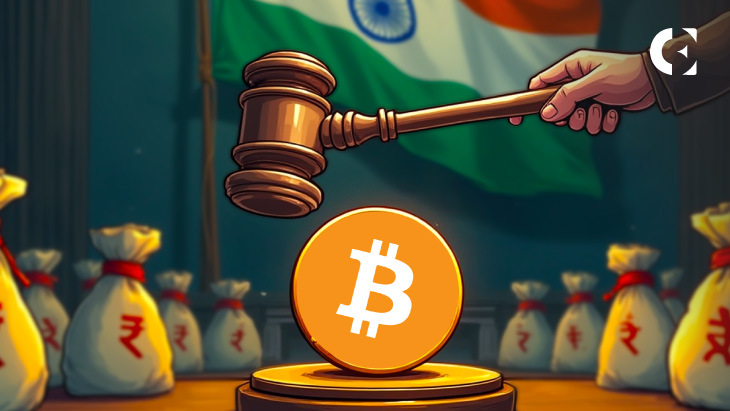- The Delhi High Court in India has denied bail to a businessman accused of a major crypto investment fraud
- The judge warned that such schemes can turn legitimate funds into “dark, unknown, and untraceable money”
- The ruling comes as India’s courts are pushing for a comprehensive regulatory framework for crypto
The Delhi High Court in India denied bail to Umesh Verma, a businessman accused of defrauding 61 people through a crypto investment scheme, with the judge issuing a stark warning that such schemes pose a threat to the nation’s financial system.
The court ruled that such schemes pose a threat to India’s financial system by converting recognized money into untraceable digital assets.
The Court’s Ruling: A “Flight Risk” with a History of Fraud
Justice Girish Kathpalia said crypto-related offenses are not only complex but also carry severe consequences for the broader economy. Kathpalia emphasized that cryptocurrency dealings could “dissolve legitimate money into dark, unknown, and untraceable money.”
Related: India Probes Crypto Use in Terror Financing Linked to Pakistan
The court described Verma as a serious flight risk and pointed to his involvement in at least 13 similar fraud cases. It also highlighted his failure to comply with mediation agreements and continued collection of funds even after the government derecognized crypto investments.
How the Alleged Scam Unfolded
Verma, founder of the Dubai-based Pluto Exchange, was arrested in December 2020 following a complaint from investor Joginder Kumar. The investor alleged he was lured into investing ₹5 lakh with promises of monthly returns between 20% and 30%.
Investigations by the Economic Offences Wing (EOW) later found that Verma had allegedly duped 61 investors from multiple states. The total estimated loss was close to ₹50 lakh, approximately $58,200 according to the exchange rate.
Prosecutors told the court that Verma continued to attract investments even after official warnings and that most victims were unaware of the risks involved.
In defense, Verma claimed he had no fraudulent intent and blamed the business failure on policy changes. He also said he had settled many of the investor claims.
However, the court sided with the prosecution, stating that Verma’s actions showed “mala fide intent” and deliberate misrepresentation. The judge said the accused used his deep financial resources to continue misleading people despite regulatory warnings.
India’s Ongoing Struggle with Crypto Regulation
Meanwhile, India’s approach to crypto has seen major shifts. The Reserve Bank of India’s 2018 ban on crypto services was overturned by the Supreme Court in 2020. In 2022, the Union budget introduced a 30% tax on crypto gains and 1% TDS on annual transfers above ₹50,000.
Related: India Urged to Follow US and Bhutan in Adopting a Sovereign Bitcoin Strategy
In 2023, crypto transactions came under the Prevention of Money Laundering Act. However, the Supreme Court and Delhi High Court have both urged the central government to enact a comprehensive regulatory framework to address rising crypto-related fraud.
Disclaimer: The information presented in this article is for informational and educational purposes only. The article does not constitute financial advice or advice of any kind. Coin Edition is not responsible for any losses incurred as a result of the utilization of content, products, or services mentioned. Readers are advised to exercise caution before taking any action related to the company.







